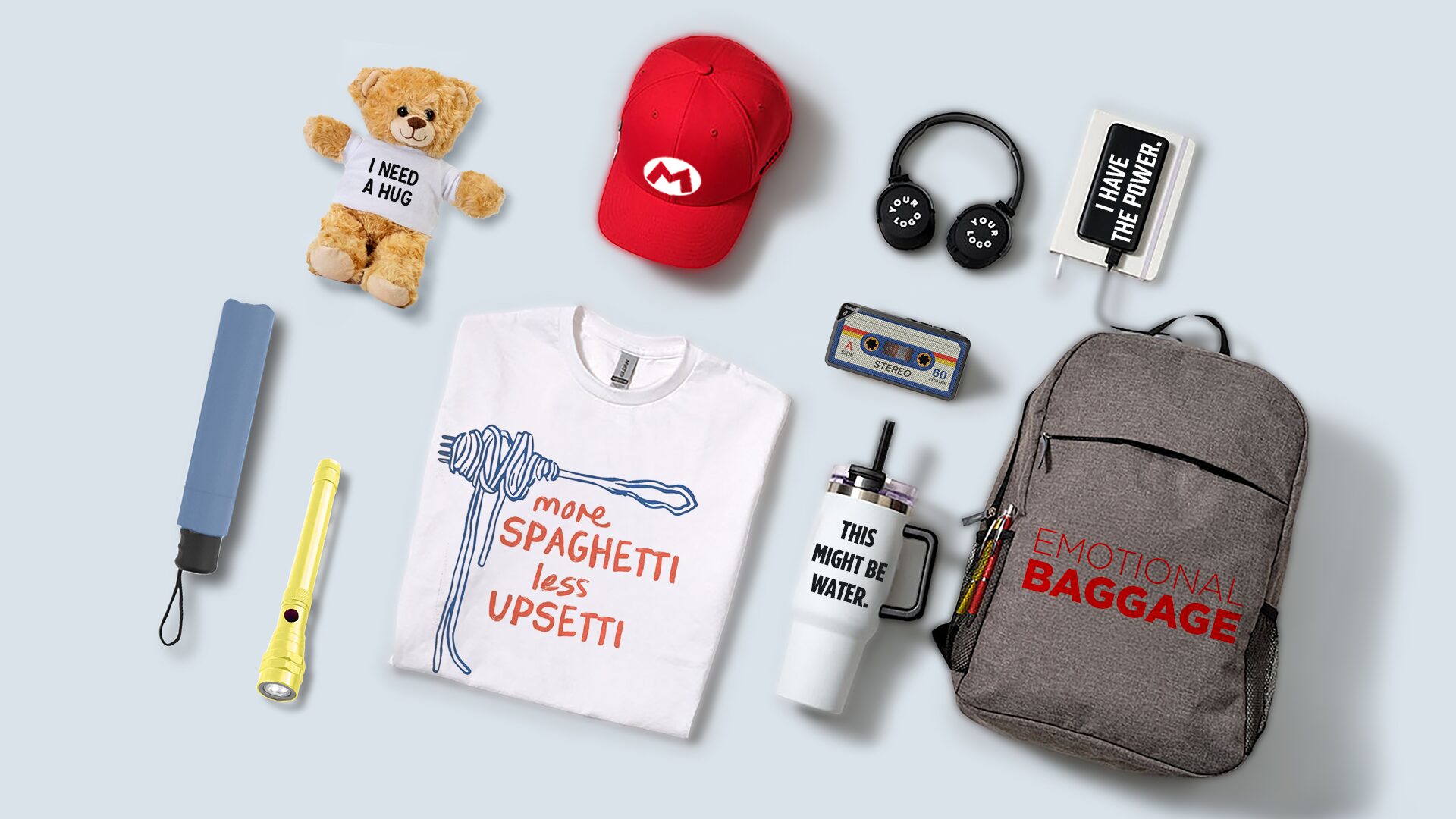It’s not a coincidence that people line up to receive free t-shirts at events, or that they store away branded pens in their desk drawers for years. These reactions stem from powerful psychological triggers that marketers have leveraged for decades.
Unlike fleeting digital ads that vanish with a scroll, promotional products have remarkable staying power compared to their digital counterparts. But why? Let’s unpack the mental mechanics that make branded merchandise so effective.
The Tangible Trumps the Digital
Our brains process physical objects differently than digital images. That stress ball sitting on your desk creates neural pathways that a banner ad simply cannot.
When you hold a quality custom water bottle or use a branded tech accessory, you’re engaging multiple senses simultaneously. This sensory-rich experience forges stronger memory connections than seeing yet another online ad that your brain has learned to tune out.
Physical media, including promotional products, generates a greater emotional response than digital content. That unexpected emotional punch explains why corporate gifts create lasting impressions where digital campaigns often fail.
The Dopamine Hit of Free Stuff
Let’s face it—humans love free things. It’s hardwired.
Receiving a promotional product triggers dopamine release, activating our brain’s reward system. This chemical reaction creates positive associations with the brand that gave us that rush. That’s why eco-friendly tote bags and custom drinkware aren’t just useful—they’re tiny happiness machines that link pleasure to your brand.
Think about it: nobody gets excited about being shown another Instagram ad, but hand someone a quality custom power bank when their phone’s dying? You’ve just become their hero.
The Reciprocity Principle
Humans operate on reciprocity. When someone gives us something, we feel compelled to return the favor.
This deeply embedded social norm explains why promotional products tap into human psychology by creating strong bonds between brands and consumers. A branded apparel item or customized office supply might cost a company just a few dollars, but the resulting psychological obligation can translate into purchases worth much more.
Small businesses particularly benefit from this effect. A thoughtfully selected promotional item communicates value and appreciation in a way digital marketing rarely achieves.
The Practical Persistence Factor
Most digital ads disappear instantly. Conversely, promotional products hang around.
That custom umbrella with your logo? It might be used for years. Quality travel accessories often become essential companions. Even humble items like magnets or calendars secure prime real estate in homes and offices, delivering thousands of brand impressions over their lifetime.
This persistence factor means promotional products continue working long after you’ve paid for them. They become integrated into customers’ daily routines, creating an ambient awareness that digital advertising struggles to match.
The Right Product Makes All the Difference
Not all promotional corporate gifts carry equal psychological weight. The key lies in relevance and usefulness.
Items that align with your brand values make coherent sense to recipients. A fitness company distributing quality water bottles? Perfect. That same company giving out cheap candy? Confusing and contradictory.
Additionally, the emotional response to an item, rather than its explicit branding, produces greater influence on consumer buying intent. This explains why thoughtfully selected promotional technology items or premium corporate gifts outperform random tchotchkes with giant logos.
Strategic Application
Smart companies approach promotional products strategically, not as afterthoughts. They consider:
- Recipient demographics and preferences
- Brand message alignment
- Quality perception (cheap items can backfire)
- Practical everyday use
This thoughtful approach transforms promotional products from mere swag into powerful psychological tools that cement brand relationships.
Digital Has Its Place
This isn’t to say digital advertising lacks value. The most effective marketing strategies integrate both approaches.
However, in an increasingly virtual world, the psychological impact of something you can actually hold has only grown stronger. The tactile connection to a brand creates mental shortcuts that digital experiences struggle to replicate.
The Bottom Line
The psychology behind promotional products reveals why they remain remarkably effective despite our digital immersion. They exploit fundamental aspects of human cognition and social behavior that haven’t changed despite our technological evolution.
For brands seeking lasting impressions and genuine connections, well-chosen promotional products tap into psychological principles that digital advertising simply cannot replicate. In a world of endless scrolling, something you can actually hold makes all the difference.





























